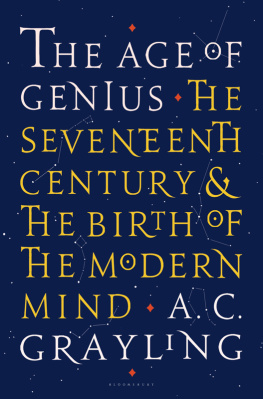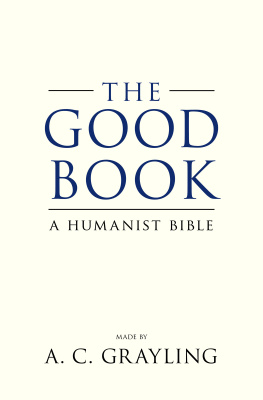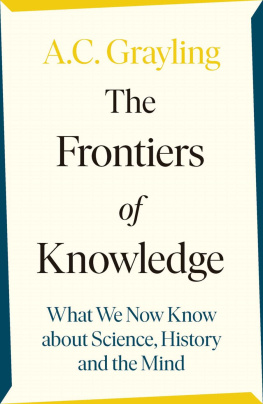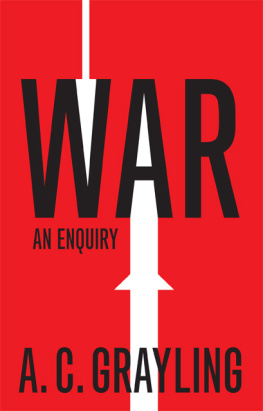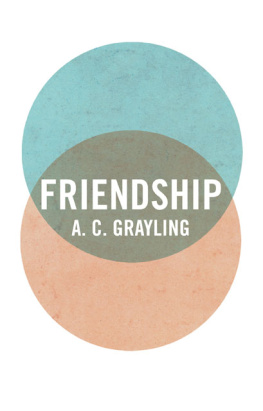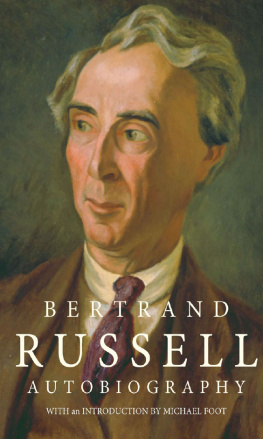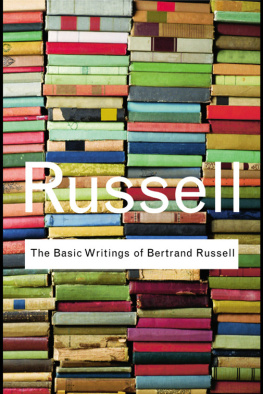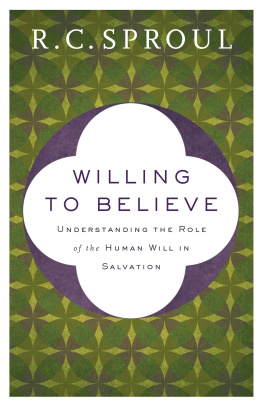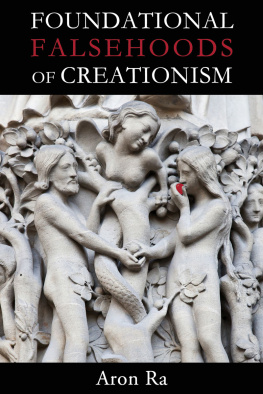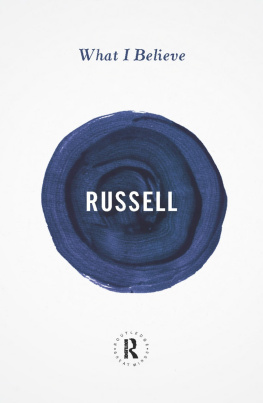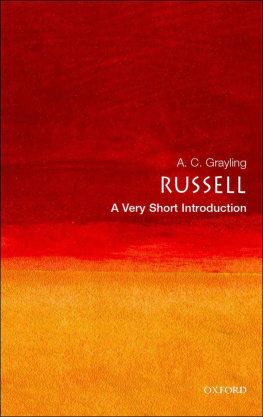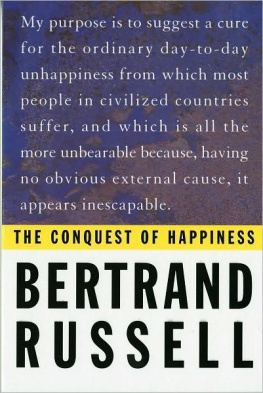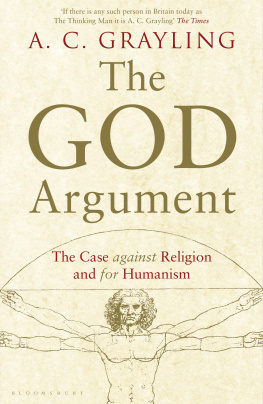Grayling - To Set Prometheus Free
Here you can read online Grayling - To Set Prometheus Free full text of the book (entire story) in english for free. Download pdf and epub, get meaning, cover and reviews about this ebook. City: London, year: 2012, publisher: OBERON BOOKS Ltd, genre: Religion. Description of the work, (preface) as well as reviews are available. Best literature library LitArk.com created for fans of good reading and offers a wide selection of genres:
Romance novel
Science fiction
Adventure
Detective
Science
History
Home and family
Prose
Art
Politics
Computer
Non-fiction
Religion
Business
Children
Humor
Choose a favorite category and find really read worthwhile books. Enjoy immersion in the world of imagination, feel the emotions of the characters or learn something new for yourself, make an fascinating discovery.
To Set Prometheus Free: summary, description and annotation
We offer to read an annotation, description, summary or preface (depends on what the author of the book "To Set Prometheus Free" wrote himself). If you haven't found the necessary information about the book — write in the comments, we will try to find it.
To Set Prometheus Free — read online for free the complete book (whole text) full work
Below is the text of the book, divided by pages. System saving the place of the last page read, allows you to conveniently read the book "To Set Prometheus Free" online for free, without having to search again every time where you left off. Put a bookmark, and you can go to the page where you finished reading at any time.
Font size:
Interval:
Bookmark:

First published in 2009 by Oberon Books Ltd.
This electronic edition first published in 2012
Oberon Books Ltd.
521 Caledonian Road, London N7 9RH
Tel: +44 (0) 20 7607 3637 / Fax: +44 (0) 20 7607 3629
e-mail: info@oberonbooks.com
www.oberonbooks.com
Copyright A C Grayling, 2009
A C Grayling is hereby identified as author of this work in accordance with section 77 of the Copyright, Designs and Patents Act 1988. The author has asserted his moral rights.
You may not copy, store, distribute, transmit, reproduce or otherwise make available this publication (or any part of it) in any form, or binding or by any means (print, electronic, digital, optical, mechanical, photocopying, recording or otherwise), without the prior written permission of the publisher. Any person who does any unauthorized act in relation to this publication may be liable to criminal prosecution and civil claims for damages.
A catalogue record for this book is available from the British Library.
PB ISBN: 978-1-84002-962-8
EPUB ISBN: 978-1-84943-360-0
Visit www.oberonbooks.com to read more about all our books and to buy them. You will also find features, author interviews and news of any author events, and you can sign up for e-newsletters so that youre always first to hear about our new releases.
I N 2007 I published a short book called Against All Gods: Six Polemics Against Religion and an Essay on Kindness. The essays in that book were deliberately short and robustly expressed; they were polemical contributions to the debate quarrel would be a better word about religion galvanised by the attack on the World Trade Centers twin towers in New York and the Pentagon in Washington, carried out on 11 September 2001 by a group of men expressly in the name of their religion, Islam, which they claimed to provide justification for the act. They were celebrated by many in the Islamic world for what they did. Those atrocities the indiscriminate mass murder of several thousand people going about their daily lives were neither the cause nor the beginning of the quarrel, but they kicked it into a new and very much higher gear; and people who beforehand had kept silent about, or anyway muted in, their critical opinion of religion and its effect on the world, now felt impelled to speak out, and to do so without mincing words.
The essays in Against All Gods are examples of that new mood, though I had been writing for years beforehand in much the same critical vein about the need for a greater secularism. I stand by everything said in Against All Gods, and even by its tone: frank speaking about religion is needful now, because quieter methods of abating its negative influence have manifestly failed. Frank speaking is not the same thing as burning at the stake, which is what votaries of religion used to do to their critics in earlier times: Richard Dawkins, Christopher Hitchens and Sam Harris might tongue-lash the faithful, but if they had lived a few centuries ago and ventured the same opinions, they would have received far more than hard words in return. It is a thought that often recurs when apologists of religion complain that the views of the so-called new atheists, or the manner of their statement, have offended them; I reflect that if the clock were turned back enough, some of these same folk might be gathering faggots for kindling even as they complained. And alas, that is what still happens in parts of the world where the grip of religion remains oppressive and too often dangerous to the lives and well-being of many.
The brevity of the essays in Against All Gods served a purpose. Correspondents and others have asked for a fuller and more detailed statement of the case against religion: I offer it in the essays collected here. My thanks go to the editors of the books and journals in which some of these essays first appeared, and to the work and personal communications of friends and colleagues in the community of those working in defence of a rational and evidence-based view of the world: Richard Dawkins, Christopher Hitchens, Sam Harris and the Reason Project, Roger Bingham and the Beyond Belief series, Daniel Dennett, Harry Kroto, Lawrence Krauss, Jerry Coyne, P. Z. Myers, Steven Pinker, and others.
The essays which had their origin elsewhere are Why I do not subscribe to religious beliefs and Why Bertrand Russell was not religious. The ancestor of the first was commissioned by Russell Blackford and Udo Schklenk for their excellent and compelling volume 50 Voices of Disbelief (Wiley Blackwell 2009) and the second was commissioned by Nick Trakakis and Graham Oppy for the fifth volume of their monumental History of the Philosophy of Religion (Oxford University Press 2009). Scientists confront Intelligent Design and Creationism and The war of the books were responses to publications, and the latter had multiple origins in New Humanist magazine.
W HERE ARE WE in human history? Are we close to the end of mankinds story, either because we are in the process of making our world uninhabitable, or because the wars and conflicts that perennially wrack us will escalate to a catastrophe? Or are we at the beginning of history, just starting to have the means through technology and its promise for education, health, communication, global cooperation which will help us become wise enough at last to live in peace, so that we can devote our pooled energies and resources wholly to progressive endeavours?
The answer to both questions is Yes and there is no contradiction in saying so. We might be close to the end of humanitys history because of environmental damage or because conflict could get out of hand or more likely both, because each makes the other worse. But if we survive climate change and a rash of nuclear wars, we will find that we are still at an early stage of human development, an immature stage, barely adolescent, only just at the beginning of scientific understanding of the world, still wedded to infantile beliefs and practices that are holding us back and causing or exacerbating the harms that threaten our existence.
The chief of these divisive, regressive obstacles is superstition, not least in its organised form as religion. It is not possible to underestimate the drag on human history that religion represents, standing in the way of progress towards individual liberation, the gathering and application of scientific knowledge, the development of open and pluralistic societies, and the adoption of a humane morality which is tolerant, generous, inclusive and just, and in which it is the fact of being human rather than the ethnicity, gender or sexuality of individuals that determines how they treat each other.
Of course religion is not the only problem confronting mankind economic and other forms of injustice loom large among those problems too but it is a very major one, and in recent years it has returned to being more open and active in its resistance to the modern world. We see creationists in America opposing science and science education, Anglicans refusing to countenance gay relationships, Catholics opposing important medical research, ultra-orthodox Jews provocatively building settlements on Palestinian land, Hindus beating Muslims to death, fundamentalist Muslims repressing women, reacting with infantile violence to criticism of Islams sacred texts and prophets, and in some of its extremer reaches encouraging indiscriminate mass murder through terrorism. This just skims the surface of an utterly unacceptable situation, in which large portions of mankind remain in some degree of thrall to myths dating from an ignorant and illiterate past.
Font size:
Interval:
Bookmark:
Similar books «To Set Prometheus Free»
Look at similar books to To Set Prometheus Free. We have selected literature similar in name and meaning in the hope of providing readers with more options to find new, interesting, not yet read works.
Discussion, reviews of the book To Set Prometheus Free and just readers' own opinions. Leave your comments, write what you think about the work, its meaning or the main characters. Specify what exactly you liked and what you didn't like, and why you think so.


